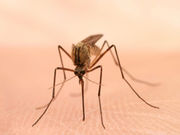
Interim guidelines developed for evaluation of infants with possible congenital Zika virus infection
WEDNESDAY, Jan. 27, 2016 (HealthDay News) — Interim guidelines have been developed for the evaluation and testing of infants born to mothers who traveled to or resided in an area with Zika virus transmission during pregnancy. The guidelines were published in the Jan. 26 early-release issue of the U.S. Centers for Disease Control and Prevention’s Morbidity and Mortality Weekly Report.
J. Erin Staples, M.D., Ph.D., from the CDC in Atlanta, and colleagues developed interim guidelines for the testing and management of infants with possible congenital Zika virus infection.
The authors note that pediatric health providers should work together with obstetric providers in order to identify infants whose mothers may have been exposed to Zika virus during pregnancy; in these cases, fetal ultrasounds should be reviewed and maternal testing for Zika virus should be considered. Infants with microcephaly or intracranial calcifications born to women who traveled to or resided in an area with Zika virus transmission during pregnancy, and infants born to mothers with positive or inconclusive results of Zika virus infection, should undergoing Zika virus testing. Additional clinical evaluation and follow-up is recommended for infants with laboratory evidence of possible congenital Zika virus infection.
“The only way to prevent congenital Zika virus infection is to prevent maternal infection, either by avoiding areas where Zika virus transmission is ongoing or strictly following steps to avoid mosquito bites,” the authors write.
Full Text
Copyright © 2016 HealthDay. All rights reserved.







